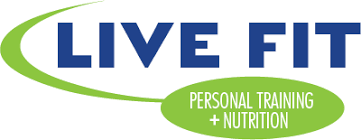Supplement Fact VS. Fiction
In more recent times, there is so much excitement about what exactly will make you thinner, stronger, faster, etc. Of course we all want these things, but the controversial studies make it hard to know what’s fact and what’s fiction. The National Institute of Health recently released a list of supplements to consider or reconsider.
Supplements for Activity
Work:
Creatine (May improve strength training, not beneficial in endurance sports. Proper dosage levels may provoke safety concerns including GI upset and water retention.)
Glutamine (May assist in muscle recovery, but no effect on muscle performance, body composition, or muscle degradation.)
Protein (essential for athletes, can be met with diet)
Beetroot juice (Vasodialor; has proven to be effective and safe in endurance exercise, more studies to be done)
Don’t work:
Beta-alanine (very conflicting evidence)
HMB
Arginine
Branched chain amino acids (little evidence of improvements, body’s needs easily met in diet)
DHEA
Iron (only beneficial for those with iron deficiency anemia. Upper limits induce safety concerns, can be met with diet.)
Ribose
Antioxidants (supplementing large doses may actually impair exercise performance)
Quercetin (very trivial improvement and inconsistent data)
Banned:
Androstenedione
Dimethylamylamine
Ephedra
**FDA regulates dietary supplements, but unlike over-the-counter medications, supplement manufacturers are NOT required to be reviewed or seek approval from the FDA. It is the supplier’s responsibility to provide a safe product, truthful label claims, and dietary contents only. ***
Supplements for Weight Loss
Work:
Carnitine (modest weight reduction, but linked to GI upset and increased risk for cardiovascular disease
Green tea (recommended as beverage; green tea extract linked to GI upset, increased blood pressure, and liver damage)
Don’t work:
Pyruvate (possible minimal effect; decreased HDL levels)
Beta-glucans (supposed to increase satiety and slow glucose absorption; no effect on body weight)
Bitter orange (may slightly increase resting energy expenditure, but inconclusive for weight loss and may result in cardiovascular complications)
Chromium
Conjugated linoleic acid
Probiotics
Raspberry ketone (insufficient research)
In conclusion, whether it be to lose weight, become more athletic, or maintain health, a given supplement isn’t going to do the trick. Consequences may arise from the approved supplements that present a possibility of working. Athletics, weight loss, and healthy lifestyle can all be achieved through what we eat and our activity level. NIH stated, “Elite and recreational athletes perform at their best and recover most quickly when they consume a nutritionally adequate diet with sufficient fluids and when they have appropriate physical conditioning and proper training.” Don’t unnecessarily put yourself and your body at risk of current or future harm. Implement a healthy lifestyle to get the results you desire to achieve.
https://ods.od.nih.gov/factsheets/ExerciseAndAthleticPerformance-HealthProfessional/
https://ods.od.nih.gov/factsheets/WeightLoss-HealthProfessional/
